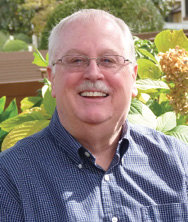 As I was preparing to teach a master’s-level course on the history of technical communication during the spring semester at Mercer University, I received an email announcing the publication of the November/December 2016 issue of Intercom. That issue featured interviews with six “Legends of Technical Communication,” as well as briefer answers to questions from a number of STC Summit keynoters. I had been thinking about assigning an oral history project in the course, so Nicky Bleiel’s special issue of interviews provided not only inspiration for the assignment but also models for my students to follow.
As I was preparing to teach a master’s-level course on the history of technical communication during the spring semester at Mercer University, I received an email announcing the publication of the November/December 2016 issue of Intercom. That issue featured interviews with six “Legends of Technical Communication,” as well as briefer answers to questions from a number of STC Summit keynoters. I had been thinking about assigning an oral history project in the course, so Nicky Bleiel’s special issue of interviews provided not only inspiration for the assignment but also models for my students to follow.
I asked a number of STC colleagues if they would be willing to sit for hour-long telephone or Skype interviews with my students. Everyone I approached agreed. I selected the six best interviews submitted by the class, and those interviews are presented in this issue, having been lightly edited by me and reviewed for accuracy by the interviewees.
Together, this group possesses a wealth of knowledge about the development of our profession. Ron Blicq began his technical communication career doing occasional editing work in a Canadian Air Force publications unit during World War II, and ultimately formed his own consulting firm and taught at a technical college. Don Cunningham started by doing clerical work as a Navy yeoman during the Korean War and eventually become an influential professor, journal editor, and textbook author in the field. Jeffrey Hibbard and Richard Hodgkinson worked for IBM on either side of “the pond,” Jeff on the editorial staff of the IBM Journal of Research and Development, and Richard as a graphic artist, icon designer, and accessibility expert. Ken Cook has worked with several companies but has spent most of his career with the Ken Cook Co., founded by his father, providing technical communication services to major corporations in the United States and around the world. Stephanie Rosenbaum began in a technical writing job that helped pay her undergraduate tuition and eventually founded her own consultancy that provides information architecture and user experience services.
All six of these folks have been active in professional organizations, including STC, the IEEE Professional Communication Society, the Association of Teachers of Technical Writing, the UK’s Institute of Scientific and Technical Communicators (ISTC), and the UX Professionals Association. Ron, Don, Jeff, Ken, and Stephanie are STC Fellows; Richard is a Fellow of the ISTC. Jeff and Ken have served as STC President.
I am grateful to all of them as well as to my students in Mercer’s MS Program in Technical Communication Management for making this special issue possible. These interviews represent not only a contribution to the history of our profession but also stories that I hope will inspire the next generation of technical communicators.
—George Hayhoe


